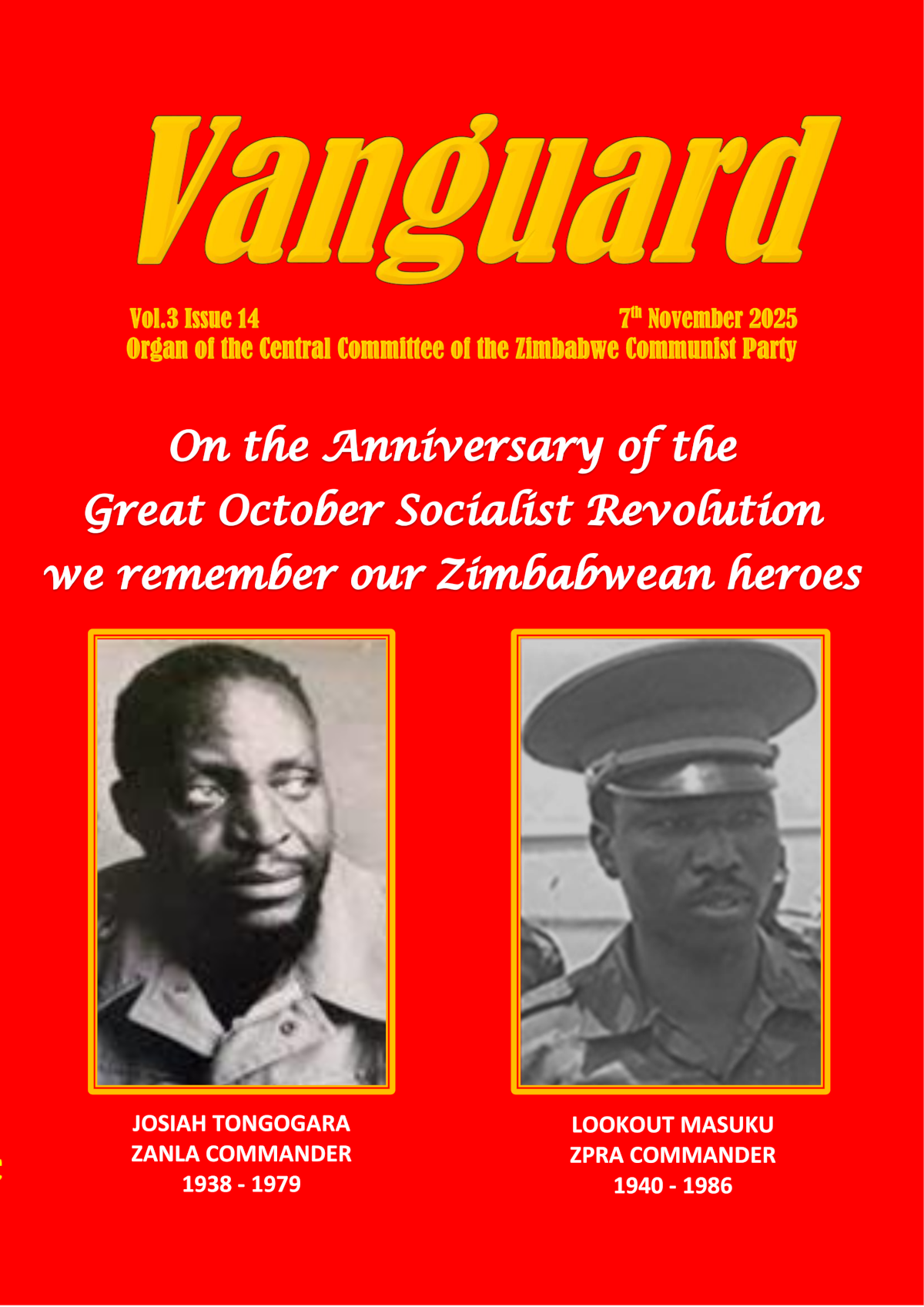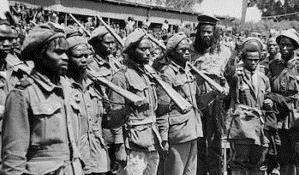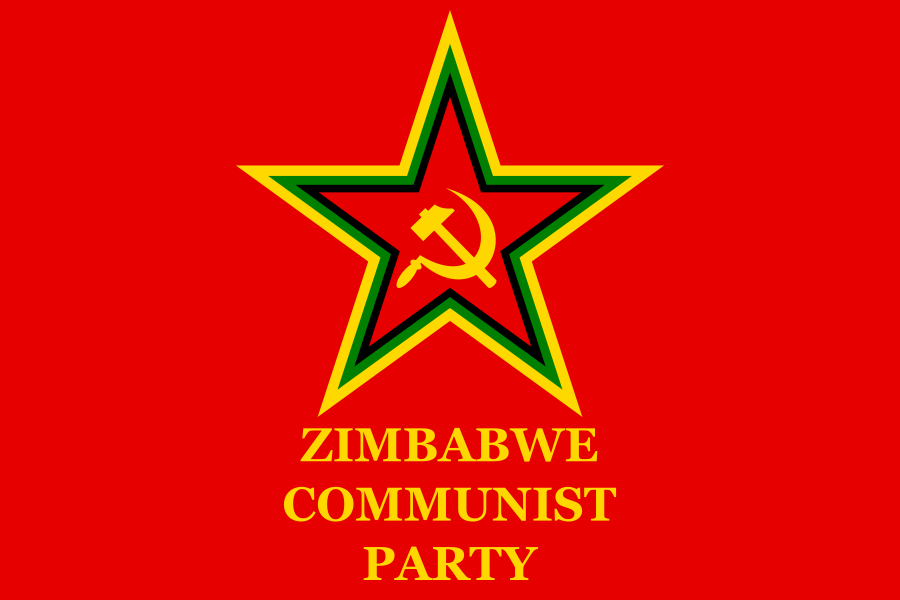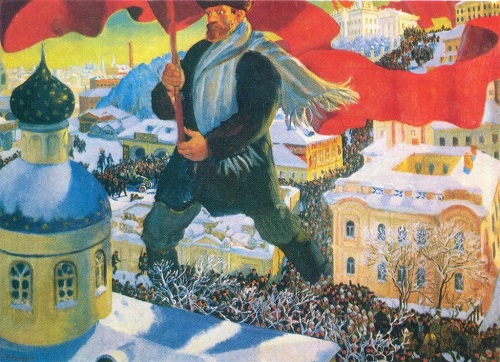Two heroes of the Armed Struggle
Neither ZANLA Commander Josiah Tongogara nor ZPRA Commander Lookout Masuku were able to enjoy the Independence they had fought for.
Josiah Tongogara (1938-1979)
Josiah Magama Tongogara was born in Selukwe (now Shurugwi) 4th February 1938. on a farm owned by the parents of Rhodesian Prime Minister Ian Smith for whom his parents were working. His sister, Jayne was to become the first wife of Emmerson Mnangagwa.
In 1960 Tongogara went to Northern Rhodesia to compete his secondary education. Northern Rhodesia was to become independent Zambia in 1964. There he joined the ZANU Youth in 1963. He was one of the first to go to China for training in 1966. In 1973 he came ZANLA Commander.
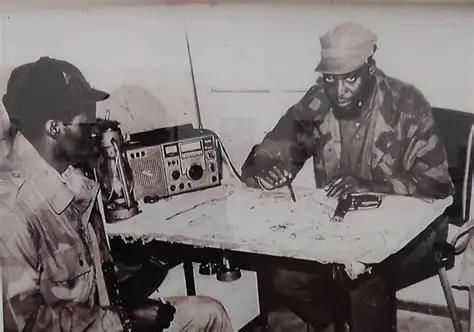
In 1975 Tongogara was arrested in Zambia for being involved in the death of Herbert Chitepo. However, Ken Flower, head of the Rhodesian Central Intelligence Organisation (CIO) has given detail of how they killed Chitepo at a time when there was division within ZANU; however in 1976 he was acquitted.
At the end of 1976, Tongogara was allowed to go to the Geneva (Switzerland) Conference called by the British to try to find a solution to the developing crisis in what was then Rhodesia. Tongogara did not like Mugabe who had become leader of ZANU that year. Also the Frontline States had pushed for ZANU and ZAPU to unite as the Patriotic Front. Tongogara strongly supported the idea of a united Patriotic Front and was impressed by Joshua Nkomo, the ZAPU leader. When the attitude of Tongogara became obvious, a hand-grenade was thrown into his room in Geneva.
In 1979 at the Lancaster House Conference which negotiated Independence, Tongogara was open about supporting a united Patriotic Front and was conciliatory towards the white settlers. He was looking forward to a united Zimbabwe. More importantlym and dangerously, he openly supported the idea of Joshua Nkomo becoming the first Prime Minister of a Patriotic Front Government, with Mugabe becoming relegated to Patriotic Front Secretary-Britain General.
When people left the Lancaster House Conference in Britain, Dumiso Dabengwa of ZPRA asked Tongogara to go with them to Zambia, as he feared for his life. But Tongogara returned to Mozambique where he died 6 days after the end of the Conference on 26th December 1979.
The official story as told by Josiah Tungamirai, Political Commissar for the ZANLA High Command is that on the night of the fatality, he and Tongogara had been travelling with others in two vehicles from Maputo to Chimoio (ZANLA Headquarters). Tungamirai said he was in the front vehicle. It was dark and the roads were bad. Tungamirai’s car passed a military vehicle that had been carelessly abandoned, with no warning signs at the side of the road. After that, he could no longer see the headlights of the following car in his rear view mirror. Eventually he turned back, and, as he had feared, they found Tongogara’s car had struck the abandoned vehicle. Tongogara was sitting in the front passenger seat. Tungamirai told me that he had struggled to lift Tongogara out of the wrecked car. He said that as he was doing so, Tongogara heaved a huge sigh and died in his arms.
However, a former Detective in the Law and Order Section of the former British South Africa Police (now Zimbabwe Republic Police) saw photographs of Tongogara’s body. He claimed that there were three wounds, consistent with gunshot wounds, to his upper torso.
ZANU released a statement from the undertaker, Mr K.J Stokes of Mashford’s Funeral Sevices saying that Tongogara’s injuries were consistent with a road accident, but no autopsy results or pictures were released. As no=one outside of ZANU believed the story, it would have been in their interests to have an autopsy if the story was indeed true.
There was no formal autopsy, and even more incriminating is the fact that Tongogara’s wife, Angelina, had not been allowed to see the body and that Tungamirai had been very harsh with her when she tried to insist.
In 2002, Oppah Muchinguri who was Tongogara’s secretary gave a different version of how Tongogara died. She explained that the accident occurred at a place which was 5 km away from the spot where all those who were in the car had earlier had a combined breakfast and lunch. By implication, the accident occurred in the afternoon. Muchinguri also explained that the vehicle they were inside swiped a trailer of a truck which they were trying to overtake, and then it veered from the road, rolling and subsequently turning more than one.
A CIA intelligence briefing of 28th December 1979 said Tongogara was a potential political rival to Mugabe because of his “ambition, popularity and decisive style”. On the same day, the US Embassy in Zambia reported: “Almost no one in Lusaka accepts Mugabe’s assurance that Tongogara died accidentally.” When the US Ambassador told the Soviet Ambassador the news, the surprised Soviet Ambassador immediately said, “inside job”.
Ian Smith also insisted in his memoirs that Tongogara’s “own people” killed him and that he had disclosed at Lancaster House that Tongogara was under threat. Smith wrote, “I made a point of discussing his death with our Police Commissioner and head of Special Branch, and both assured me that Tongogara had been assassinated”.
Most telling is the fact that four of Tongogara’s former bodyguards had died in suspicious circumstances since independence. One was said to have been hit by a car outside a Harare hotel after telling friends that when he retired from the army he would “sell the BBC the true story of Tongogara’s death”. All of those killed had access to Tongogara’s diaries in which his negotiations with Joshua Nkomo Were reported.
Whatever the truth is about the death of Josiah Magama Tongogara, the important fact here is that his death was a major factor in preventing the unity of the Patriotic Front. ZAPU, led by Joshua Nkomo was backed by the USSR and in unity with the ANC of South Africa. The late Thenjiwe Lesabe believed that the CIA was involved with his death. Certainly, the USA and UK at that time preferred ZANU to ZAPU and did not want any party backed by the USSR to come to power.
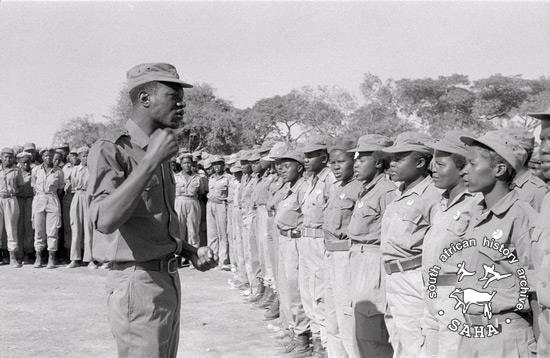
Lookout Masuku (1940-1986)
Lookout Khalisabantu Vumindaba Masuku, known as ‘Mafela’ was born on 7th April 1940 in Gwanda. Lookout Masuku’s military career started when he became a full-time political activist in Beitbridge in 1962. He then left the country the following year, and underwent military training, which he completed in 1964. He was later appointed as an instructor at Morogoro training camp in Tanzania. He was then appointed as Commissar and Deputy Commander ZPRA and was distinguished in the field of battle. On 28th June 1978, ZPRA Commander Nikita Mangena was killed by a land-mine. Lookout Masuku was then appointed PRA Commander.
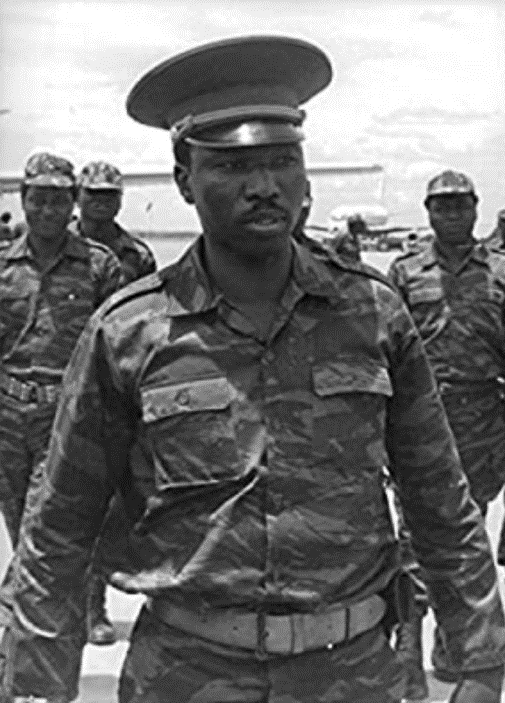
Masuku represented ZPRA on the Ceasefire Commission and on the Joint Operations Command, where he played a pivotal role in securing and implementing the ceasefire agreement under the Lancaster House Agreement.
Lookout Masuku led the first group of guerrillas who returned home after the declaration of ceasefire. His promotion to Lieutenant-General of the integrated Zimbabwe National Army was gazetted in 1981 and he was appointed Deputy Commander to General Solomon Mujuru (also known by his Chimurenga name, Rex Nhongo).
In 1982 Lookout Masuku together with Dumiso Dabengwa the ZPRA Chief of Intelligence chief were arrested for allegedly planning a coup d’état against then-Prime Minister Robert Mugabe. They were detained until 1983. In 1983 the Supreme Court of Zimbabwe found both Lookout Masuku and Dumiso Debengwa not guilty of the charges. However, the police refused to release them and invoked emergency regulations, holding them for four years. On the 11th March 1986, Lookout Masuku, already sick, was aent to Parirenyatwa Hospital, Harare where he died on Saturday 5th April 1986 at 2 pm, officially from Cryptococcal Menengitis, an inflammation of membranes covering the brain.. However, many have expressed doubt over the official cause of death. Judith Todd, (daughter of progressive Southern Rhodesian Prime Minister Garfield Todd) in her book Through the Darkness, expressed doubts whether the ‘specialist’ who attended him was “indeed a specialist or even a registered doctor at all”.
Lieutenant-General Lookout Masuku was buried at Lady Stanley Cemetery in Bulawayo on Saturday 12th April 1986. Tens of thousands of people came to pay their last respects. Joshua Nkomo was the main speaker at the funeral. In his speech Nkomo said:
Lookout Masuku was eventually given Heroes Status in 1996
